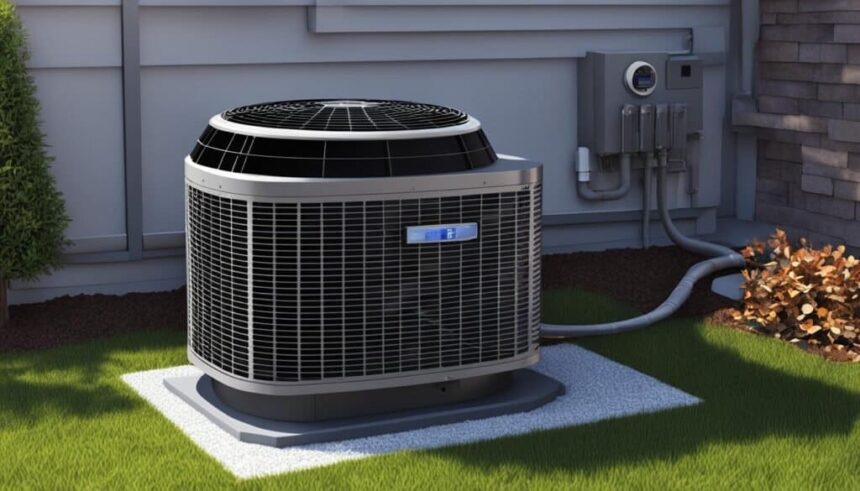Reducing energy consumption is a top priority for homeowners, both to save on utility bills and to minimize environmental impact. Residential heating and cooling systems account for a significant portion of a home’s energy use, making energy efficiency in these systems crucial. By understanding how to optimize your heating, ventilation, and air conditioning (HVAC) system, you can create a more sustainable and cost-effective living environment. Here’s a comprehensive guide to achieving energy efficiency in residential HVAC systems.
Why Energy Efficiency Matters
Energy efficiency is more than just a buzzword—it provides tangible benefits:
- Lower Utility Bills: Efficient systems consume less energy, translating into significant savings over time.
- Enhanced Comfort: Optimized systems maintain consistent temperatures and improve indoor air quality.
- Environmental Benefits: Reducing energy consumption decreases your home’s carbon footprint, contributing to global sustainability efforts.
- System Longevity: Efficient systems experience less wear and tear, extending their operational lifespan.
- Increased Property Value: Homes with energy-efficient systems are often more appealing to potential buyers.
Assessing Your Current HVAC System
The first step to improving energy efficiency is evaluating the performance of your existing HVAC system:
- Age of the System:
- Systems over 10-15 years old are likely less efficient than modern models.
- Consider upgrading to a newer, energy-efficient unit if your system is outdated.
- Energy Bills:
- Review your utility bills for patterns of high energy usage, which may indicate inefficiency.
- Performance Issues:
- Uneven temperatures, frequent cycling, or insufficient heating or cooling are signs of an inefficient system.
- Professional Evaluation:
- A trusted provider like Nardco Heating & Air Conditioning can perform an energy audit to identify areas for improvement.
Upgrading to Energy-Efficient Systems
Modern HVAC systems are designed with energy efficiency in mind. Upgrading to these systems can provide substantial benefits:
- High SEER and AFUE Ratings:
- Look for systems with a high Seasonal Energy Efficiency Ratio (SEER) for cooling and Annual Fuel Utilization Efficiency (AFUE) for heating. These ratings reflect the system’s efficiency.
- Variable-Speed Technology:
- Systems with variable-speed motors adjust their operation based on demand, reducing energy consumption during periods of lower usage.
- Smart Thermostats:
- Integrate a smart thermostat to program energy-saving temperature settings and monitor usage remotely.
- Zoned Systems:
- Zoned systems allow you to control temperatures in specific areas of your home, avoiding unnecessary heating or cooling.
- Energy Star Certification:
- Prioritize systems with Energy Star certification for proven energy efficiency.
Maintenance Tips for Energy Efficiency
Regular maintenance is key to maintaining an energy-efficient HVAC system. Here are essential maintenance practices:
- Replace Air Filters:
- Dirty filters restrict airflow, forcing the system to work harder. Replace filters every 1-3 months.
- Clean Ductwork:
- Dust and debris in ducts reduce airflow and strain the system. Schedule periodic duct cleaning.
- Inspect and Seal Ducts:
- Leaky ducts can cause significant energy loss. Seal any leaks with mastic or foil tape.
- Check Thermostat Settings:
- Set thermostats to energy-efficient levels when you’re away from home.
- Schedule Professional Tune-Ups:
- Regular checkups by professionals, like those from Nardco Heating & Air Conditioning, ensure your system operates at peak efficiency.
- Inspect Outdoor Units:
- Keep the area around outdoor units clear of debris, and clean coils to maintain optimal performance.
Enhancing Efficiency with Insulation
Good insulation works hand-in-hand with an efficient HVAC system. Properly insulated homes retain heat during winter and stay cool in summer, reducing the workload on your system:
- Attic Insulation:
- Heat escapes through the attic in winter and enters during summer. Adding insulation reduces this transfer.
- Wall Insulation:
- Insulate walls to prevent thermal loss and maintain consistent indoor temperatures.
- Weatherstripping and Caulking:
- Seal gaps around doors and windows to eliminate drafts and minimize energy loss.
- Window Treatments:
- Use energy-efficient windows or apply window films to block heat in summer and retain it in winter.
Renewable Energy Options for HVAC Systems
For homeowners committed to sustainability, integrating renewable energy sources into HVAC systems is an excellent option:
- Solar-Powered HVAC Systems:
- Solar panels can power HVAC units, significantly reducing reliance on nonrenewable energy sources.
- Geothermal Heat Pumps:
- These systems use the earth’s stable underground temperature to heat and cool your home efficiently.
- Energy Recovery Ventilators (ERVs):
- ERVs capture and reuse energy from exhaust air to condition incoming fresh air.
- Hybrid Systems:
- Combining traditional HVAC systems with renewable energy solutions enhances efficiency and reduces emissions.
Simple DIY Energy-Saving Practices
In addition to system upgrades and maintenance, small changes can make a big difference in energy efficiency:
- Use Ceiling Fans:
- Fans help circulate air, allowing you to raise the thermostat setting in summer or lower it in winter without sacrificing comfort.
- Adjust Blinds and Curtains:
- Close blinds during hot summer days to block heat and open them during winter to let in sunlight.
- Program Thermostat Settings:
- Set temperatures to align with your daily routine, reducing energy use when the house is empty.
- Reduce Heat-Generating Activities:
- Run appliances like ovens and dishwashers during cooler parts of the day.
- Seal Drafts:
- Identify and seal drafts in less visible areas such as basements and crawlspaces.
Incentives for Energy-Efficient Upgrades
Investing in energy-efficient HVAC systems often comes with financial benefits:
- Tax Credits and Rebates:
- Federal, state, and local programs offer incentives for installing energy-efficient systems.
- Utility Company Programs:
- Many utility providers offer rebates for upgrading to efficient HVAC units or implementing energy-saving measures.
- Lower Operating Costs:
- The savings on utility bills over time offset the initial investment in high-efficiency systems.
- Increased Resale Value:
- Energy-efficient homes are more attractive to buyers, often commanding higher market prices.
The Role of Professionals
Achieving maximum energy efficiency requires expert guidance. Trusted providers like Nardco Heating & Air Conditioning can assess your system, recommend upgrades, and ensure proper installation. Their experience ensures that your HVAC system delivers optimal performance with minimal energy waste.
Conclusion
Energy efficiency in residential heating and cooling systems is essential for saving money, protecting the environment, and maintaining home comfort. By upgrading to modern systems, performing regular maintenance, and incorporating smart energy practices, homeowners can significantly reduce their energy consumption. Partnering with experts like Nardco Heating & Air Conditioning ensures your system operates at peak efficiency, providing long-term savings and sustainability. Take the first steps toward a more efficient future today, and enjoy the benefits of a greener, cost-effective home.


